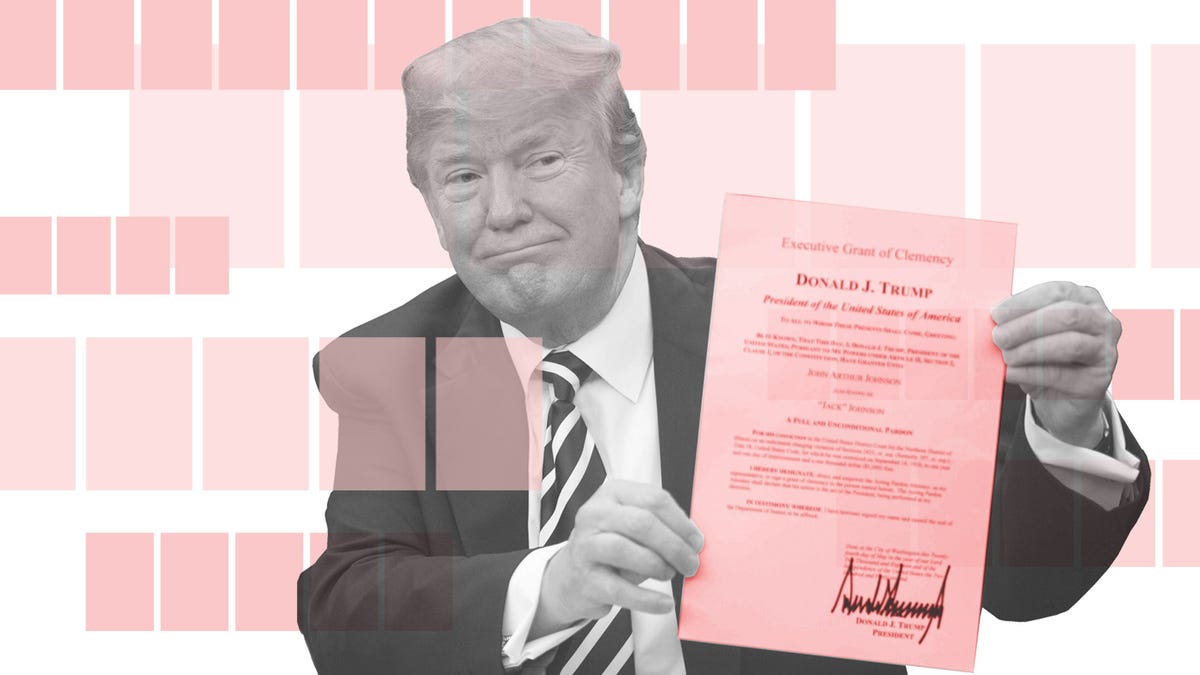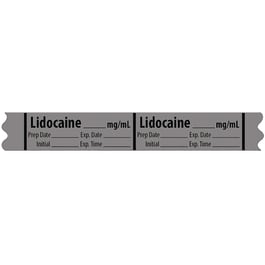The Legal And Political Ramifications Of Trump's Second-Term Pardons

Table of Contents
The Scope of Presidential Pardon Power
The power of presidential pardon is enshrined in Article II, Section 2, Clause 1 of the US Constitution, granting the President the authority to "grant Reprieves and Pardons for Offenses against the United States." However, this seemingly absolute power is not without limits, and its historical application reveals a complex interplay of legal interpretation and political expediency.
Constitutional Limits and Historical Precedents
While the Constitution grants broad authority, there are limitations. Pardons cannot be granted in cases of impeachment, and they generally apply only to federal crimes. Examining historical precedents provides crucial context. Presidents have used pardons for various reasons, from acts of clemency for minor offenses to highly controversial interventions in politically charged cases. Gerald Ford's pardon of Richard Nixon remains a prime example of a pardon deeply debated for its political implications. Conversely, many presidential pardons have been relatively uncontroversial, focusing on rehabilitation and mercy.
- Limitations on pardons: The president cannot pardon someone for state crimes, only federal offenses. They also cannot pardon someone who has been impeached.
- Examples of political pardons: Ford's pardon of Nixon is a classic case study, along with other instances where pardons were perceived as politically motivated.
- Legal interpretation: The Supreme Court has interpreted the scope of pardon power in various cases, leading to ongoing debate among legal scholars about the exact boundaries of this authority.
Potential Legal Challenges to Second-Term Pardons
The potential for legal challenges to Trump's second-term pardons is substantial, particularly concerning preemptive pardons and the distinction between federal and state jurisdictions.
Preemptive Pardons and Due Process
Issuing pardons before charges are even filed raises serious due process concerns. Such preemptive pardons could be challenged in court on the grounds that they deny individuals the right to a fair trial and the opportunity to defend themselves against accusations.
- Potential lawsuits: Legal challenges would likely focus on whether preemptive pardons violate the Fifth Amendment's due process clause.
- Constitutional arguments: The debate will center on whether the president can effectively shield individuals from prosecution before any wrongdoing is even established.
- Relevant case law: Precedents concerning executive privilege and due process will be central to any legal arguments.
Pardons for Federal Crimes vs. State Crimes
A crucial limitation of presidential pardon power is its confinement to federal offenses. A president cannot pardon someone for a state crime, even if the individual has also been convicted on federal charges related to the same incident.
- Jurisdictional differences: Federal and state courts operate independently, with distinct legal processes and jurisdictions.
- Implications for pardoned individuals: Someone pardoned for a federal crime could still face prosecution and imprisonment in a state court.
- Historical examples: Cases where individuals faced both federal and state charges showcase the limitations of presidential pardons.
Political Ramifications and Public Opinion
The political ramifications of Trump's second-term pardons, if granted, would be profound and far-reaching, impacting the 2024 election and shaping public perceptions of justice and the rule of law.
Impact on the 2024 Election and Beyond
The issuance of pardons could significantly influence the 2024 election. Depending on who is pardoned and the timing of the pardons, this could energize or depress voter turnout for different candidates.
- Voter turnout and candidate support: The impact would depend largely on public perception of the pardons and the individuals involved.
- Public opinion polls: Tracking public opinion on presidential pardons and their perceived fairness would be crucial.
- Political backlash or support: The reaction could range from outrage to strong support, depending on the political affiliations of those involved.
Damage to Democratic Institutions and the Rule of Law
Widespread pardons, especially those perceived as politically motivated, could seriously damage public trust in democratic institutions and the rule of law. This erosion of faith in the fairness and impartiality of the justice system could have long-term consequences.
- Perception of justice and fairness: Public confidence in the judicial system is paramount; this could be undermined by perceived abuses of pardon power.
- Impact on democratic institutions: The integrity of institutions relies on public trust, which could be severely eroded by seemingly partisan uses of pardons.
- Long-term consequences for the rule of law: Damage to the rule of law can have profound and lasting effects on society's stability and overall governance.
Conclusion
The prospect of Trump's second-term pardons presents a complex interplay of legal and political risks. The potential for preemptive pardons, legal challenges based on due process violations, and the distinction between federal and state jurisdiction creates a significant legal minefield. Simultaneously, the potential political ramifications are equally daunting, with the possibility of influencing the 2024 election and eroding public trust in democratic institutions. Staying informed about the ongoing legal and political developments surrounding presidential pardon power, and engaging in informed discussions about the implications of Trump's second-term pardons, is crucial for understanding the future of American justice and politics. Continue to follow reputable news sources and legal analyses to stay updated on this crucial issue.

Featured Posts
-
 Celtics Injury Report Key Guard Out For Game 3 Against Magic
May 15, 2025
Celtics Injury Report Key Guard Out For Game 3 Against Magic
May 15, 2025 -
 Everest Ascent In A Week Anesthetic Gas Risks And Criticisms
May 15, 2025
Everest Ascent In A Week Anesthetic Gas Risks And Criticisms
May 15, 2025 -
 Water Contamination Threatens Township Residents
May 15, 2025
Water Contamination Threatens Township Residents
May 15, 2025 -
 Ovechkin Pobil Rekord Leme V Pley Off N Kh L
May 15, 2025
Ovechkin Pobil Rekord Leme V Pley Off N Kh L
May 15, 2025 -
 Padres Vs Pirates Expert Mlb Predictions And Todays Game Odds
May 15, 2025
Padres Vs Pirates Expert Mlb Predictions And Todays Game Odds
May 15, 2025
Latest Posts
-
 12 7
May 16, 2025
12 7
May 16, 2025 -
 The 1 Debt Tom Cruises Unpaid Role To Tom Hanks
May 16, 2025
The 1 Debt Tom Cruises Unpaid Role To Tom Hanks
May 16, 2025 -
 7 12
May 16, 2025
7 12
May 16, 2025 -
 Tom Hanks And Tom Cruise A 1 Debt That Still Remains Unsettled
May 16, 2025
Tom Hanks And Tom Cruise A 1 Debt That Still Remains Unsettled
May 16, 2025 -
 Tom Cruises Unpaid Debt To Tom Hanks The 1 Role He Never Played
May 16, 2025
Tom Cruises Unpaid Debt To Tom Hanks The 1 Role He Never Played
May 16, 2025
